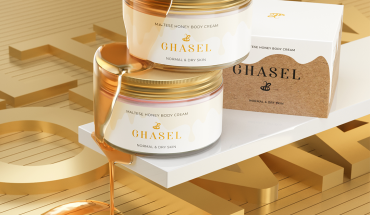Skin conditioning with cosmetic oils is gaining on popularity. Why? Because those cosmetics contain many natural ingredients, they take care of every skin type, are easily available, and the best part is you can make them by yourself. However, before you proceed with this type of skin care, you should choose the most appropriate cosmetic oil for yourself. Check below how to do that.
Cosmetic oils can be divided according to few criteria. There are drying, semi-drying and non-drying oils, but also polyunsaturated, mono-unsaturated and saturated oils. Those last oils contain high concentration of Omega-3, Omega-6 and Omega-9 fatty acids. Drying oils are recommended for people with combination, oily or prone to acne and blackheads skin. They have light consistency, spread evenly and absorb fast. They do not leave greasy layer, don’t clog pores and can be used as a make-up base. To drying oils we count: linseed oil, jojoba oil, evening promise oil and hempseed oil.
Non-drying oils are great for dry, sensitive and mature skin. Those have quite greasy consistency, that is why, they will absorb much longer, but they contain moisturising, smoothing and oily properties. They can cause blackheads, so people with oily skin should stop using this oil right away. Non-drying oils are: coconut oil, argan oil, macadamia oil, marula oil and avocado oil. There are also semi-drying oils, and those are best for normal skin. In this group of cosmetics we enumerate: sweet almond oil, plum seed oil and apricot oil.
How can you choose right cosmetic oil for yourself? Not only saturation of fatty acids or their absorption abilities should be took into consideration, but also other important matters related to oils. Natural cosmetic oil should be cold presses and unrefined. Only such preparation consists of all nourishing ingredients and valuable properties. Cosmetic oil should be stored in a proper conditions, i.e. far away from light, humidity, air, what is more in an air tight packaging and no longer than few to several months since the date of its pressing.






Leave a Reply